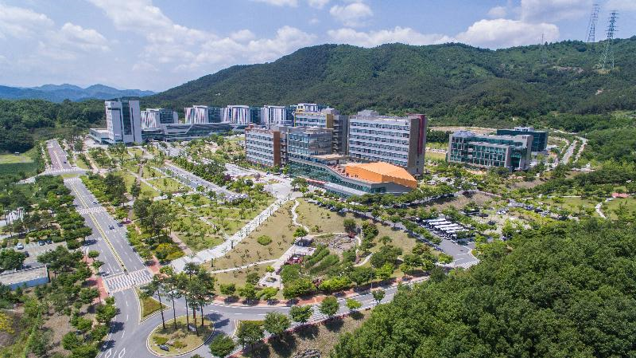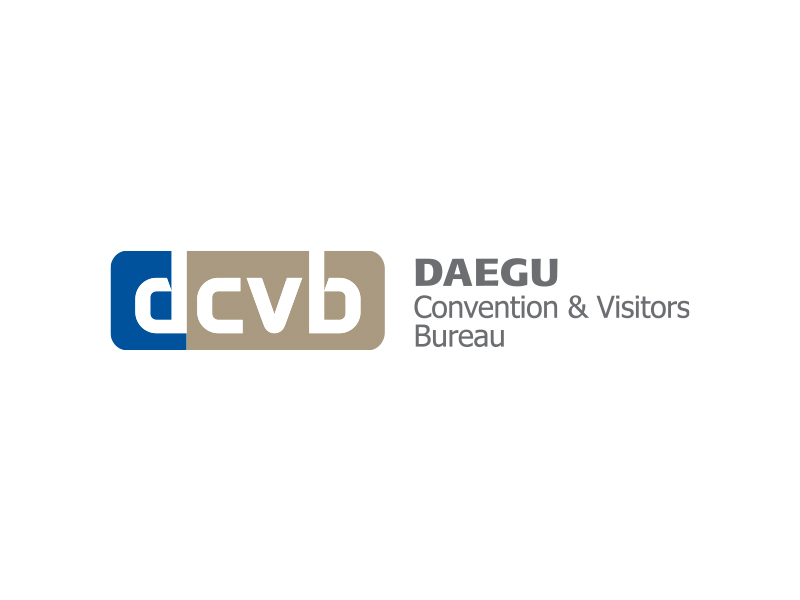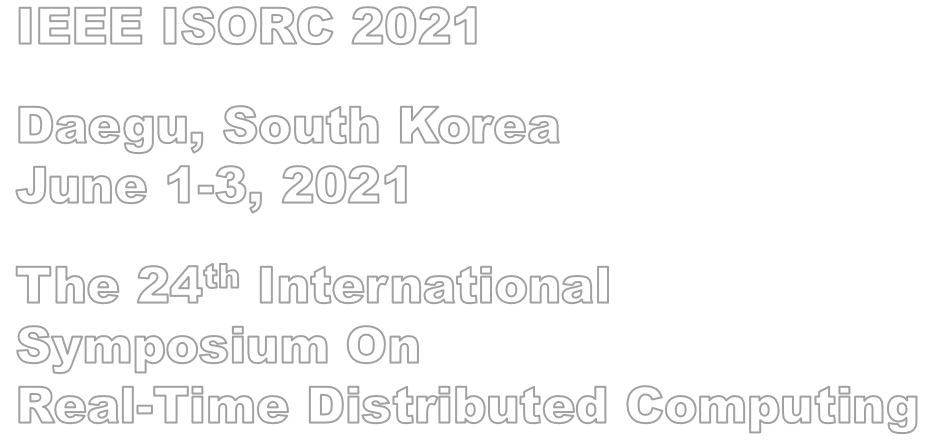



IEEE ISORC was founded in 1998 (with its first meeting in Kyoto, Japan) to address research into the application of real-time object-oriented distributed technology. Since then, ISORC has continually evolved to meet the latest challenges faced by researchers and practitioners in the real-time domain, with an emphasis on object-, component- and service-oriented systems and solutions.
ISORC is a single-track conference, with a lively community. We have hosted a number of associated workshops, and are proud of our spirit of openness. We seek to encourage diverse views and new approaches to all Real-Time Issues and Challenges for novel applications and systems in RT computing issues.
For our 24th symposium, we are meeting in South Korea, in the city of Daegu. virtual.
Main Track:
Submission deadline: February 5, January 25, January 15 2021 (anywhere on earth)
Rebuttal period: March 29-31, March 15-17 2021
Acceptance notification: April 9, March 29 2021
Camera-ready papers: April, 23, April 16 2021
Conference: June 1 - 3, 2021
Poster/Demo Session:
Submission deadline: April 12, April 5 2021
Acceptance notification: April 19, April 12 2021
Camera-ready papers: April 23, April 16 2021
Conference: June 1 - 3, 2021
Registration:
Author registration deadline: TBD
| Speaker: Insik Shin, Professor, School of Computing, KAIST, Korea |
|---|
| Title: Towards New Multi-device Computing: Flexible UI Distribution for Transparent One-app Multi-device Execution |
| Abstract |
|
Recent years have seen rapid development of mobile computing and IoT technologies, which transforms day-to-day objects into smart devices from smartphones to smart home to smart cars. Such technology development creates interesting opportunities and challenges in the way users interact with smart devices. In particular, a growing trend of multi-device ownership and usage creates the need and opportunity to use applications across multiple devices for better user experience. However, in general, the current app development and usage still remain within the single-device paradigm, falling far short of user expectation. This talk will cover and demonstrate some research efforts towards multi-device mobile platforms that allow existing single-device apps to run across multiple devices by splitting and distributing user interfaces across different devices for their concurrent execution, without any app code modification required. This way, it allows to preserve the same ap development complexity as in the single-device paradigm. |
| Bio |
|
Insik Shin is a professor in the School of Computing at KAIST, Korea. He holds a Ph.D. degree in computer science from University of Pennsylvania. His primary research interests include real-time embedded systems, mobile computing, and systems security. He has served on program committees of top international conferences, including RTSS, RTAS and ECRTS. He has won several awards for his research work in international conferences and industries, including the best (student) paper awards of MobiCom 2019, RTSS 2003 & 2012, and RTAS 2011. |
We acknowledge support from the following.
 |
 |
